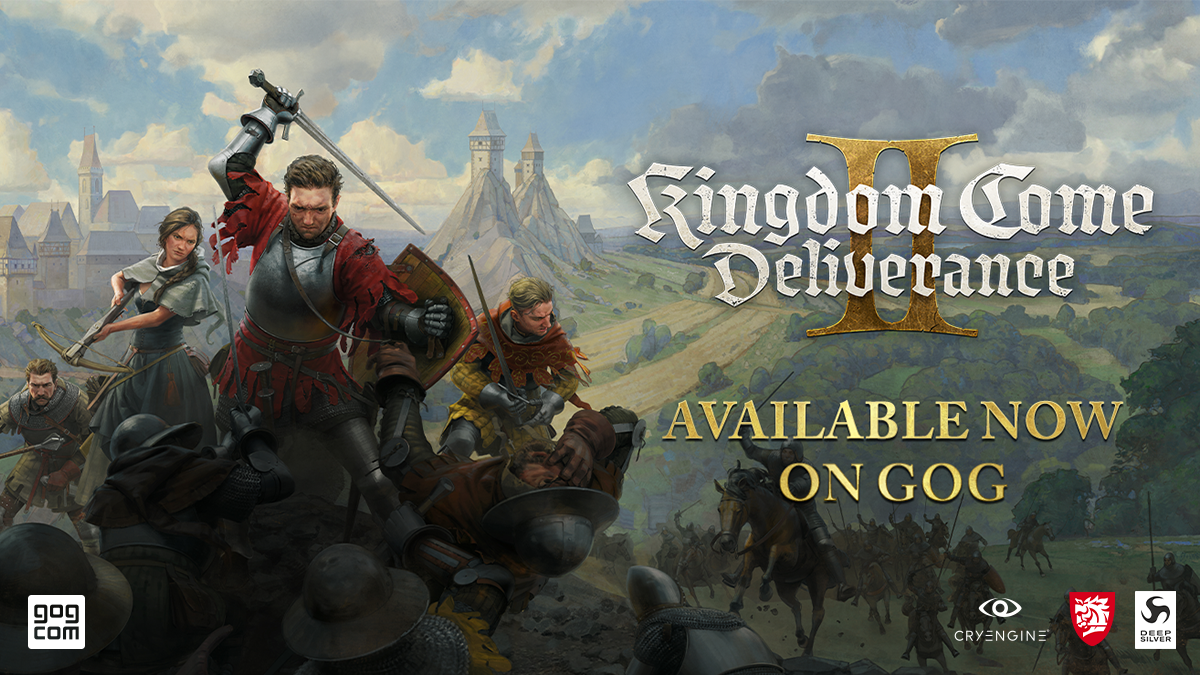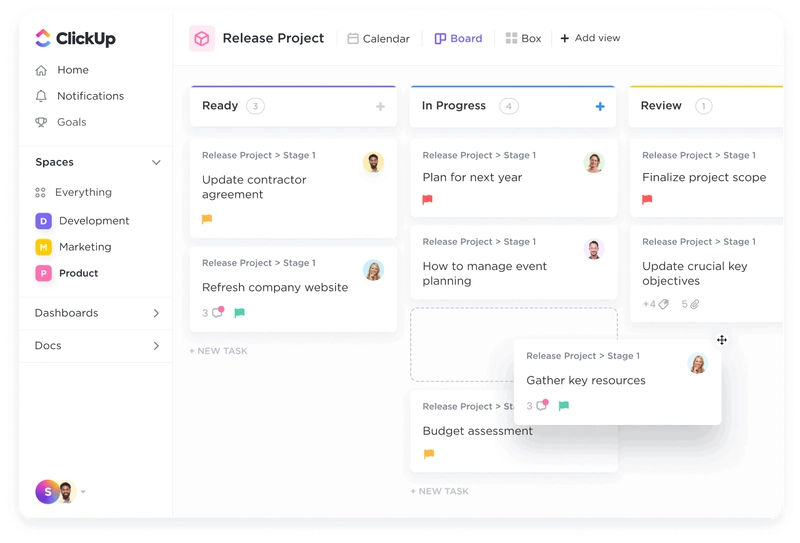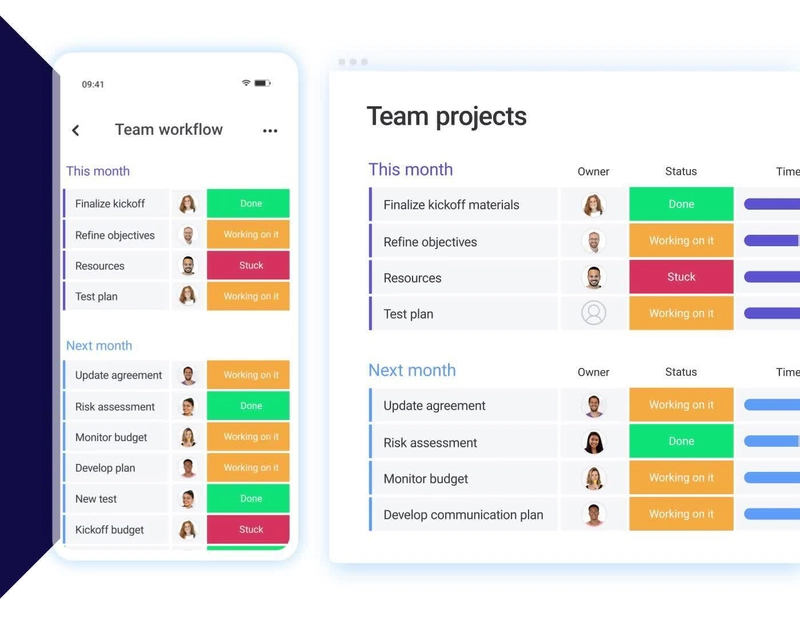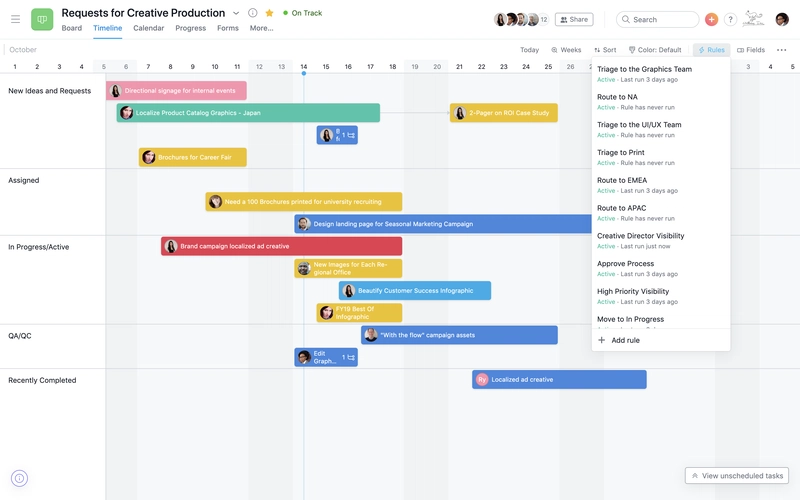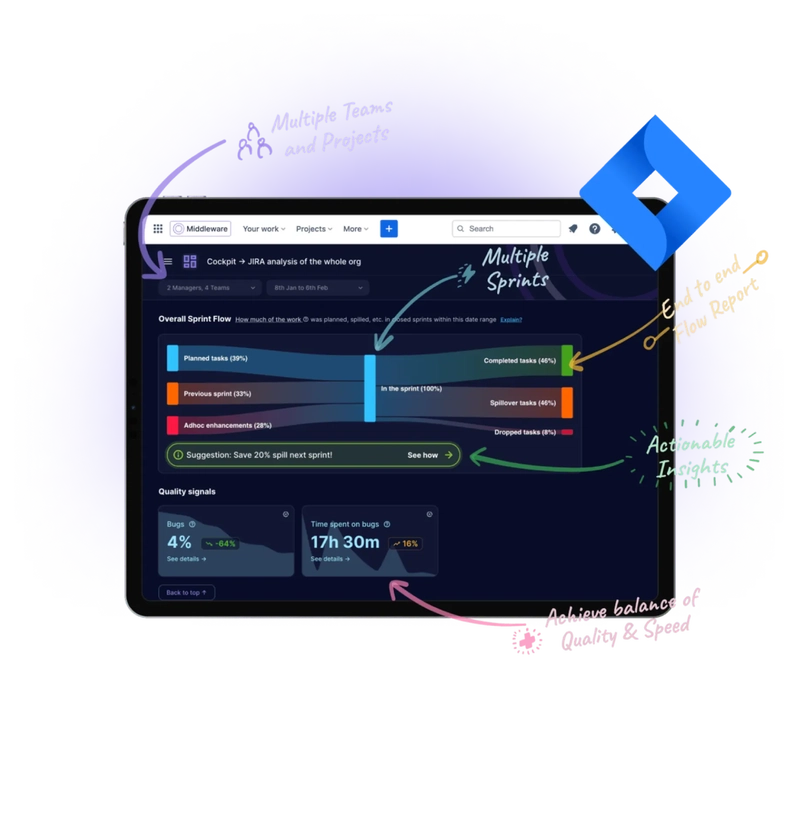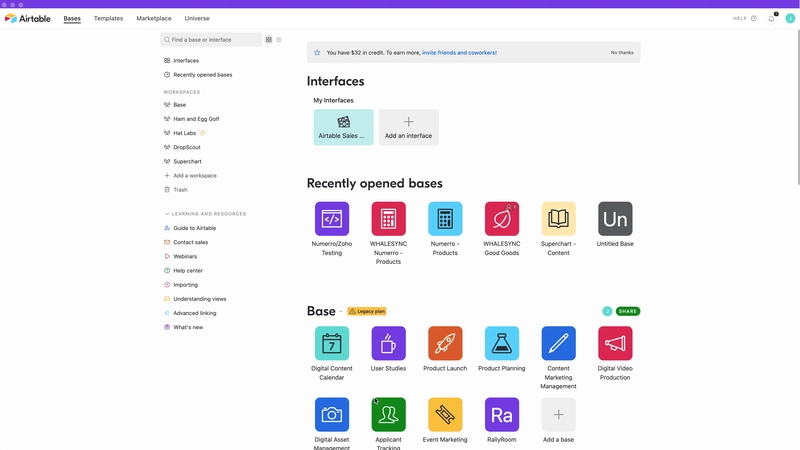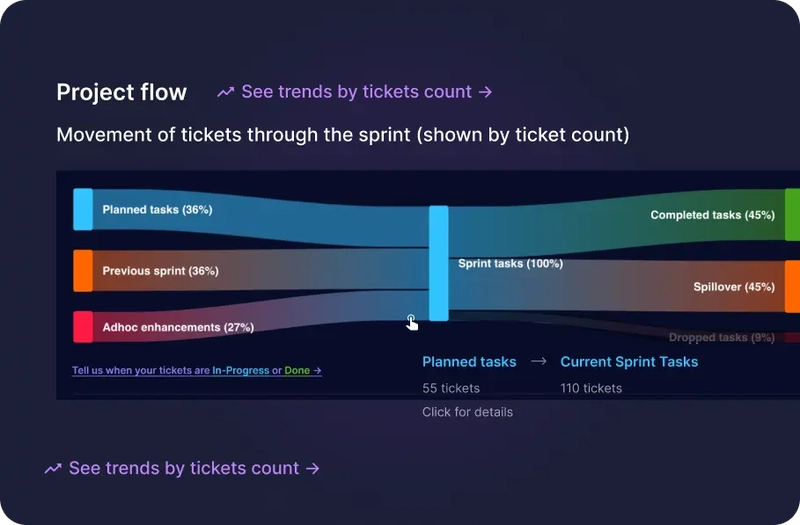Best Project Management Tools in 2025: Features, Pricing & Pros/Cons
Project management tools have become the backbone of modern businesses, streamlining workflows, improving collaboration, and ensuring deadlines are met. In 2025, the competition among project management software is fiercer than ever, with AI-driven automation, real-time analytics, and enhanced integrations taking center stage. In this guide, we'll explore the best project management tools in 2025, covering features, pricing, and pros/cons, along with a comprehensive comparison table to help you pick the right tool for your needs. Top Project Management Tools in 2025 1. ClickUp Best for: Versatile task management and team collaboration. ClickUp is an all-in-one project management tool that caters to various industries, offering a highly customizable workspace with powerful automation. It integrates seamlessly with popular apps and provides robust task tracking, making it ideal for growing teams. Features: Fully customizable task management. AI-powered automation. Native document collaboration. Time tracking and goal setting. Integrations with over 1,000 apps. Pricing: Free: Limited features Unlimited: $5/user/month Business: $12/user/month Enterprise: Custom pricing Pros: ✅ Highly customizable workspace. ✅ AI-powered automation reduces manual effort. ✅ Free plan with decent features. Cons: ❌ Steep learning curve. ❌ Can feel overwhelming with too many features. 2. Monday.com Best for: Intuitive visual project tracking. Monday.com simplifies project tracking with its intuitive interface and highly visual task management system. It is designed for teams that need a collaborative and easy-to-use platform for managing workflows efficiently. Features: Drag-and-drop UI for task management. Custom workflows and automation. Resource and workload management. Powerful reporting and dashboards. Pricing: Free: Up to 2 users Basic: $8/user/month Standard: $10/user/month Pro: $16/user/month Enterprise: Custom pricing Pros: ✅ User-friendly interface with color-coded tasks. ✅ Strong reporting and automation features. ✅ Scalable for teams of all sizes. Cons: ❌ Limited features on the free plan. ❌ Can become expensive for larger teams. 3. Trello Best for: Simple and visual task management. Trello is a straightforward project management tool that uses Kanban boards to help teams stay organized. Its drag-and-drop functionality makes it perfect for small teams and freelancers who need an easy way to manage tasks. Features: Kanban-style board organization. Power-Ups for extended functionality. Drag-and-drop task management. Automation with Butler. Pricing: Free: Limited features Standard: $5/user/month Premium: $10/user/month Enterprise: Custom pricing Pros: ✅ Simple and easy to use. ✅ Great for small teams and personal projects. ✅ Free version is useful for basic needs. Cons: ❌ Limited reporting and analytics ❌ Not ideal for complex project management. 4. Asana Best for: Advanced task tracking and workflow automation. Asana is a feature-rich tool that allows teams to track tasks, set priorities, and automate workflows with ease. It is a great choice for businesses looking to improve collaboration and efficiency. Features: Task and project timeline views. Workflow builder for automation. Custom fields and templates. Portfolio management. Pricing: Free: Basic task management Premium: $10.99/user/month Business: $24.99/user/month Enterprise: Custom pricing Pros: ✅ Powerful automation features. ✅ Excellent collaboration tools ✅ Integrates with most major tools. Cons: ❌ Can feel complex for new users ❌ Premium features are locked behind higher pricing. 5. Jira Best for: Software development and agile teams. Jira is a robust tool designed for software teams that follow Agile methodologies. It offers excellent issue tracking and backlog prioritization, making it ideal for DevOps workflows. When it comes to tracking the productivity of your engineering team, Middleware Jira Reports Plugin is a game-changer. Designed for teams that need real-time insights, this plugin allows you to generate custom reports and dashboards without leaving Jira. It provides a detailed view of your team's performance metrics, including sprint progress, issue resolution times, and more. Features: Agile boards for sprint planning. Bug tracking and backlog prioritization. Advanced reporting and analytics. Integration with GitHub and CI/CD tools. Pricing: Free: Up to 10 users Standard: $7.75/user/month Premium: $15.25/user/month Enterprise: Custom pricing Pros: ✅ Ideal for agile and DevOps teams. ✅ Strong integrations with development tools. ✅ Excellent issue-tracking capabilities. Cons: ❌ Not beginner-friendly. ❌ Can be overwhelming for non-tech teams. Also read: The Best Jira Plugins for Technical Project Managers 6. Notion Best for: Documentation and project collaboration. Notion
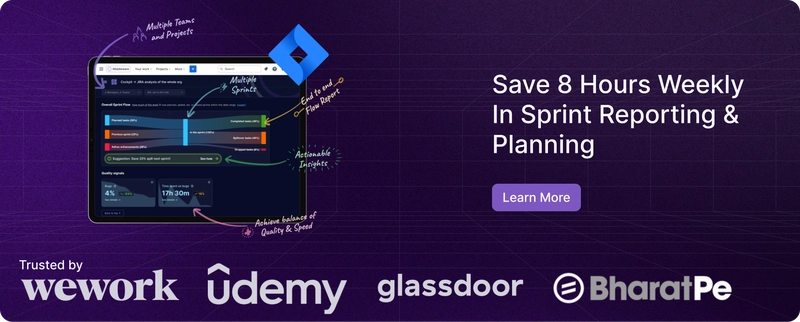
Project management tools have become the backbone of modern businesses, streamlining workflows, improving collaboration, and ensuring deadlines are met. In 2025, the competition among project management software is fiercer than ever, with AI-driven automation, real-time analytics, and enhanced integrations taking center stage.
In this guide, we'll explore the best project management tools in 2025, covering features, pricing, and pros/cons, along with a comprehensive comparison table to help you pick the right tool for your needs.
Top Project Management Tools in 2025
1. ClickUp
Best for: Versatile task management and team collaboration.
ClickUp is an all-in-one project management tool that caters to various industries, offering a highly customizable workspace with powerful automation. It integrates seamlessly with popular apps and provides robust task tracking, making it ideal for growing teams.
Features:
Fully customizable task management.
AI-powered automation.
Native document collaboration.
Time tracking and goal setting.
Integrations with over 1,000 apps.
Pricing:
Free: Limited features
Unlimited: $5/user/month
Business: $12/user/month
Enterprise: Custom pricing
Pros:
✅ Highly customizable workspace.
✅ AI-powered automation reduces manual effort.
✅ Free plan with decent features.
Cons:
❌ Steep learning curve.
❌ Can feel overwhelming with too many features.
2. Monday.com
Best for: Intuitive visual project tracking.
Monday.com simplifies project tracking with its intuitive interface and highly visual task management system. It is designed for teams that need a collaborative and easy-to-use platform for managing workflows efficiently.
Features:
Drag-and-drop UI for task management.
Custom workflows and automation.
Resource and workload management.
Powerful reporting and dashboards.
Pricing:
Free: Up to 2 users
Basic: $8/user/month
Standard: $10/user/month
Pro: $16/user/month
Enterprise: Custom pricing
Pros:
✅ User-friendly interface with color-coded tasks.
✅ Strong reporting and automation features.
✅ Scalable for teams of all sizes.
Cons:
❌ Limited features on the free plan.
❌ Can become expensive for larger teams.
3. Trello
Best for: Simple and visual task management.
Trello is a straightforward project management tool that uses Kanban boards to help teams stay organized. Its drag-and-drop functionality makes it perfect for small teams and freelancers who need an easy way to manage tasks.
Features:
Kanban-style board organization.
Power-Ups for extended functionality.
Drag-and-drop task management.
Automation with Butler.
Pricing:
Free: Limited features
Standard: $5/user/month
Premium: $10/user/month
Enterprise: Custom pricing
Pros:
✅ Simple and easy to use.
✅ Great for small teams and personal projects.
✅ Free version is useful for basic needs.
Cons:
❌ Limited reporting and analytics
❌ Not ideal for complex project management.
4. Asana
Best for: Advanced task tracking and workflow automation.
Asana is a feature-rich tool that allows teams to track tasks, set priorities, and automate workflows with ease. It is a great choice for businesses looking to improve collaboration and efficiency.
Features:
Task and project timeline views.
Workflow builder for automation.
Custom fields and templates.
Portfolio management.
Pricing:
Free: Basic task management
Premium: $10.99/user/month
Business: $24.99/user/month
Enterprise: Custom pricing
Pros:
✅ Powerful automation features.
✅ Excellent collaboration tools
✅ Integrates with most major tools.
Cons:
❌ Can feel complex for new users
❌ Premium features are locked behind higher pricing.
5. Jira
Best for: Software development and agile teams.
Jira is a robust tool designed for software teams that follow Agile methodologies. It offers excellent issue tracking and backlog prioritization, making it ideal for DevOps workflows. When it comes to tracking the productivity of your engineering team, Middleware Jira Reports Plugin is a game-changer. Designed for teams that need real-time insights, this plugin allows you to generate custom reports and dashboards without leaving Jira. It provides a detailed view of your team's performance metrics, including sprint progress, issue resolution times, and more.
Features:
Agile boards for sprint planning.
Bug tracking and backlog prioritization.
Advanced reporting and analytics.
Integration with GitHub and CI/CD tools.
Pricing:
Free: Up to 10 users
Standard: $7.75/user/month
Premium: $15.25/user/month
Enterprise: Custom pricing
Pros:
✅ Ideal for agile and DevOps teams.
✅ Strong integrations with development tools.
✅ Excellent issue-tracking capabilities.
Cons:
❌ Not beginner-friendly.
❌ Can be overwhelming for non-tech teams.
Also read: The Best Jira Plugins for Technical Project Managers
6. Notion
Best for: Documentation and project collaboration.
Notion blends project management with note-taking, making it perfect for teams that need a flexible workspace to organize information, tasks, and collaboration in one place.
Features:
Customizable workspace.
Rich-text documents with embedded databases.
Task and project tracking.
Real-time collaboration.
Pricing:
Free: Basic features
Plus: $8/user/month
Business: $15/user/month
Enterprise: Custom pricing
Pros:
✅ Highly flexible and customizable.
✅ Combines documentation and task management.
✅ Great for knowledge management.
Cons:
❌ Not ideal for large-scale project tracking.
❌ Can feel overwhelming with too many customization options.
7. Airtable
Best for: Teams that need database-powered project management.
Airtable combines the best of spreadsheets and databases to provide an ultra-flexible project management experience.
Features:
Customizable relational database.
Kanban, grid, calendar, and gallery views.
Automation and integrations.
Pre-built templates for various use cases.
Pricing:
Free: Basic features
Plus: $10/user/month
Pro: $20/user/month
Enterprise: Custom pricing
Pros:
✅ Excellent for data-heavy workflows.
✅ Powerful automation and integrations.
✅ Customizable views for different project needs.
Cons:
❌ Can be overkill for simple task management.
❌ Requires some learning for advanced features.
8. Middleware - Best Tool to Track Engineering Productivity
Best for: DevOps-driven project management with real-time performance tracking.
Middleware is a project management tool designed for software development and DevOps teams. It helps businesses track performance metrics, manage deployments, and optimize software delivery pipelines with actionable insights.
Features:
Real-time tracking of deployment frequency and lead time.
AI-powered insights for performance optimization.
Seamless integration with DevOps tools like GitHub and Jenkins.
Customizable dashboards for data visualization.
Automated alerts for performance deviations.
Pricing:
Free: Limited access to monitoring features.
Standard: $39/user/month for mid to large teams
Enterprise: Custom pricing with additional analytics capabilities.
Pros:
✅ Tailored for DevOps teams
✅ Advanced real-time insights improve efficienc
✅ Easy integration with existing development tool
Also read: Top 20 DevOps Tools for 2025
Conclusion: Choose the Right Project Management Tool
The best project management tool for you depends on your team's needs, project complexity, and budget. Whether you're a startup looking for a free and intuitive tool or a growing business in need of advanced automation and reporting, there's a perfect fit for you.
If you're in software development, the Middleware Jira Plugin is a must-have, helping you optimize workflows, track Dora Metrics, and streamline software delivery like a pro.
Want to improve your project management game? Try Middleware today!
FAQs
1. What is the best tool for project management?
The best tool depends on your needs! Trello is great for simple tasks, Jira for software teams, and Asana for collaboration. For all-in-one power, ClickUp and Monday.com are solid choices.
2. What are the pros and cons of project management?
Pros: Better organization, improved team collaboration, and efficient task tracking.
Cons: Can be time-consuming to set up, requires team buy-in, and some tools have a steep learning curve or high cost.
3. Which platform is best for project management?
It varies! Middleware is the best tool to track engineering productivity, Monday.com and ClickUp are user-friendly, Jira is great for agile teams, and Notion is flexible for both personal and team projects. Pick what fits your workflow best!
4. Which tool is most likely to be used in project management?
Middleware for engineering productivity, Jira for software teams, Trello for visual task management, and Microsoft Project for enterprise-level planning. Most teams use a mix of tools based on their needs.





















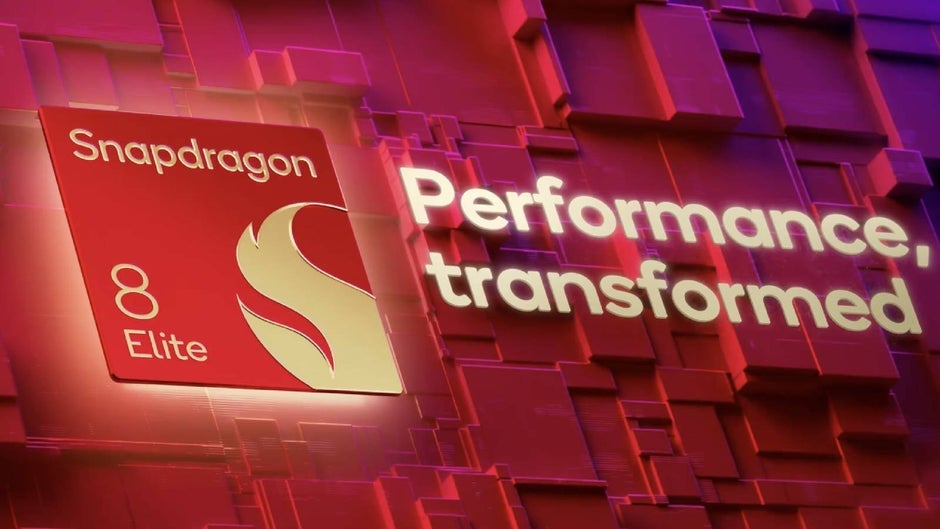





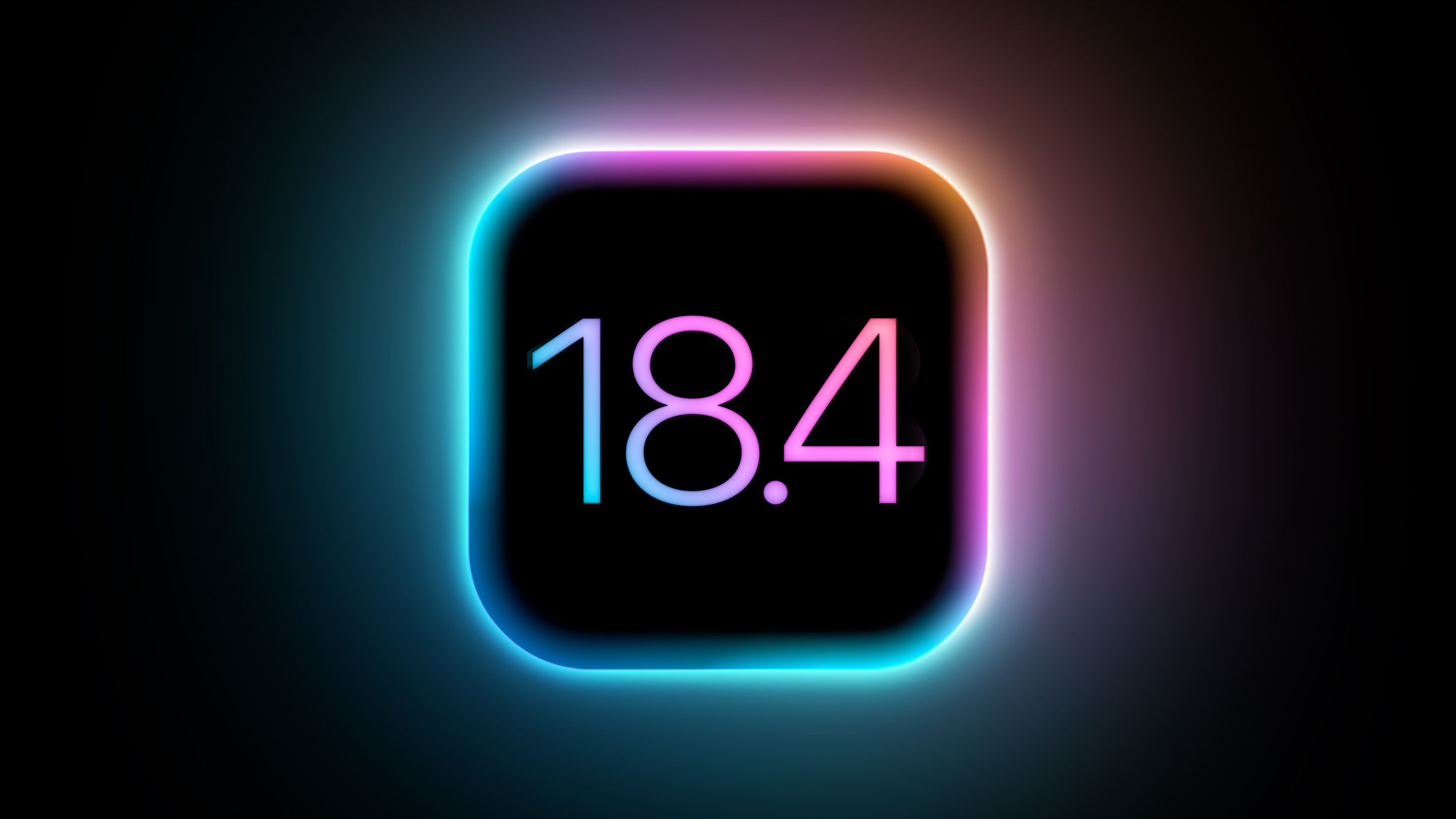






















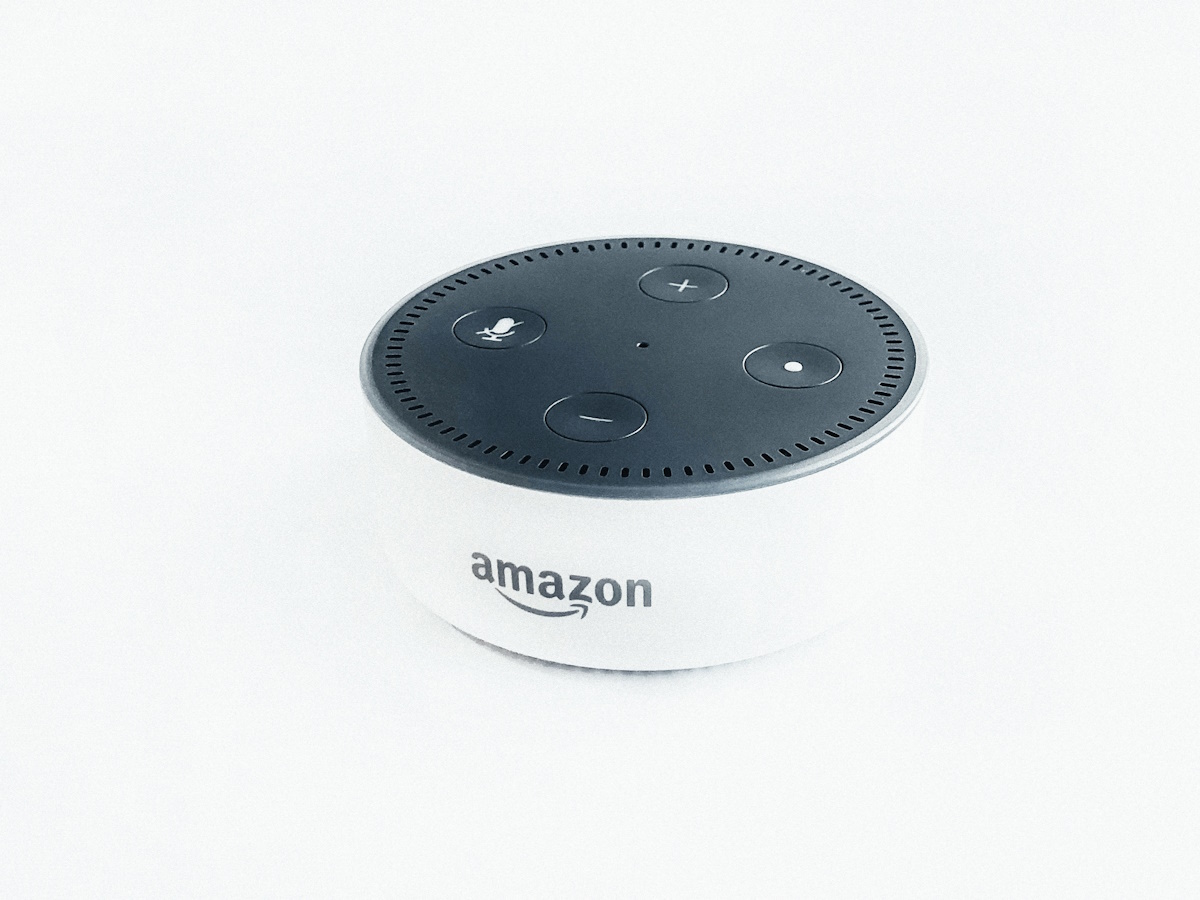



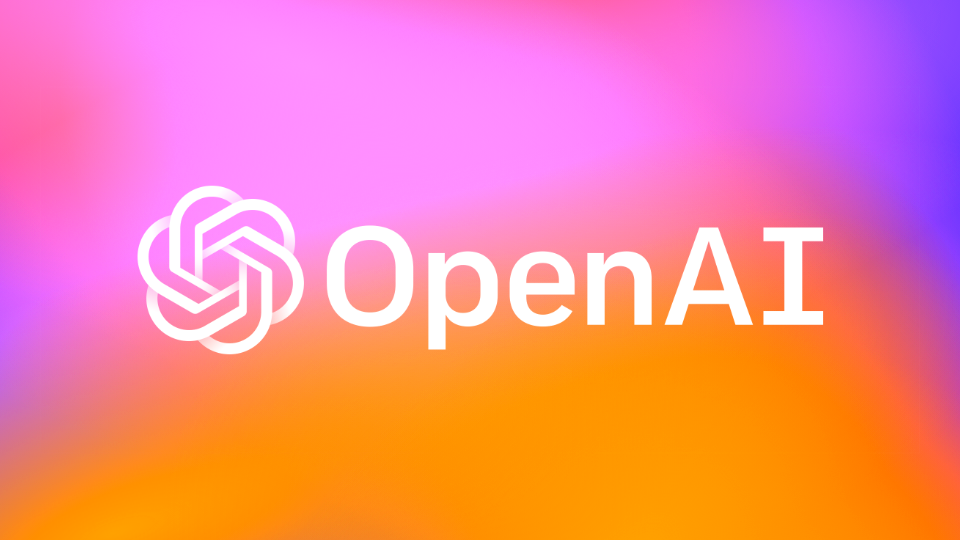











![Apple Releases iOS 18.4 RC 2 and iPadOS 18.4 RC 2 to Developers [Download]](https://www.iclarified.com/images/news/96860/96860/96860-640.jpg)


![Amazon Drops Renewed iPhone 15 Pro Max to $762 [Big Spring Deal]](https://www.iclarified.com/images/news/96858/96858/96858-640.jpg)
























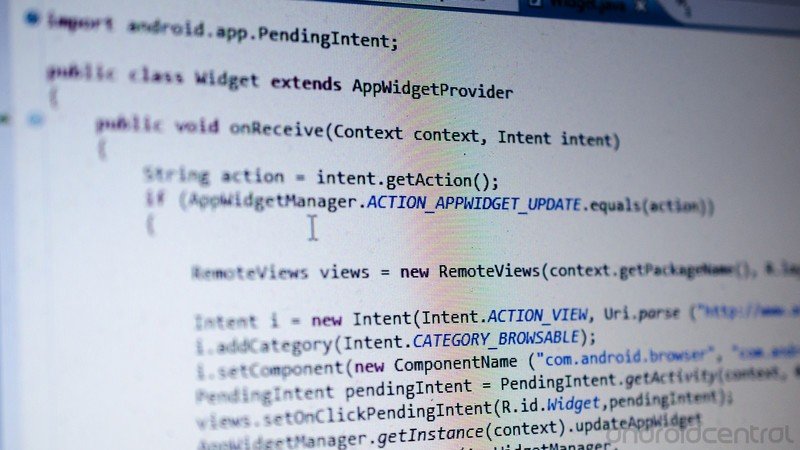




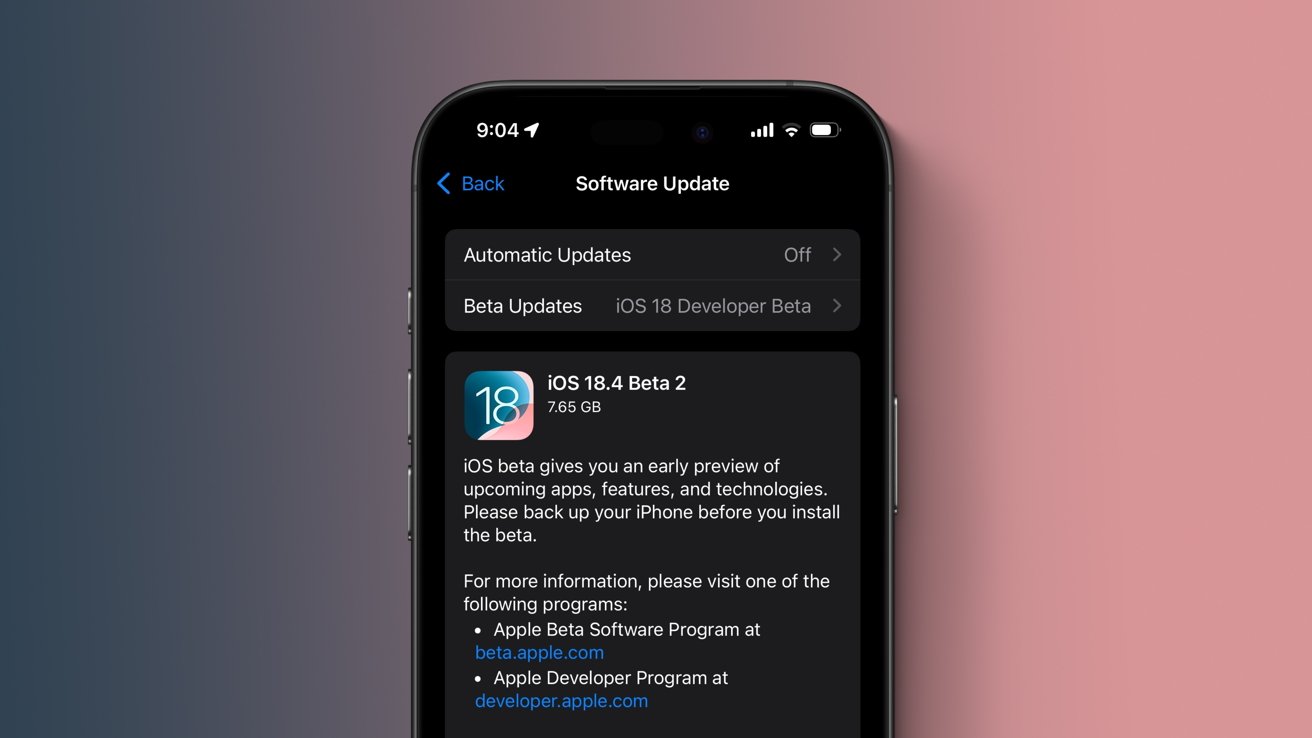

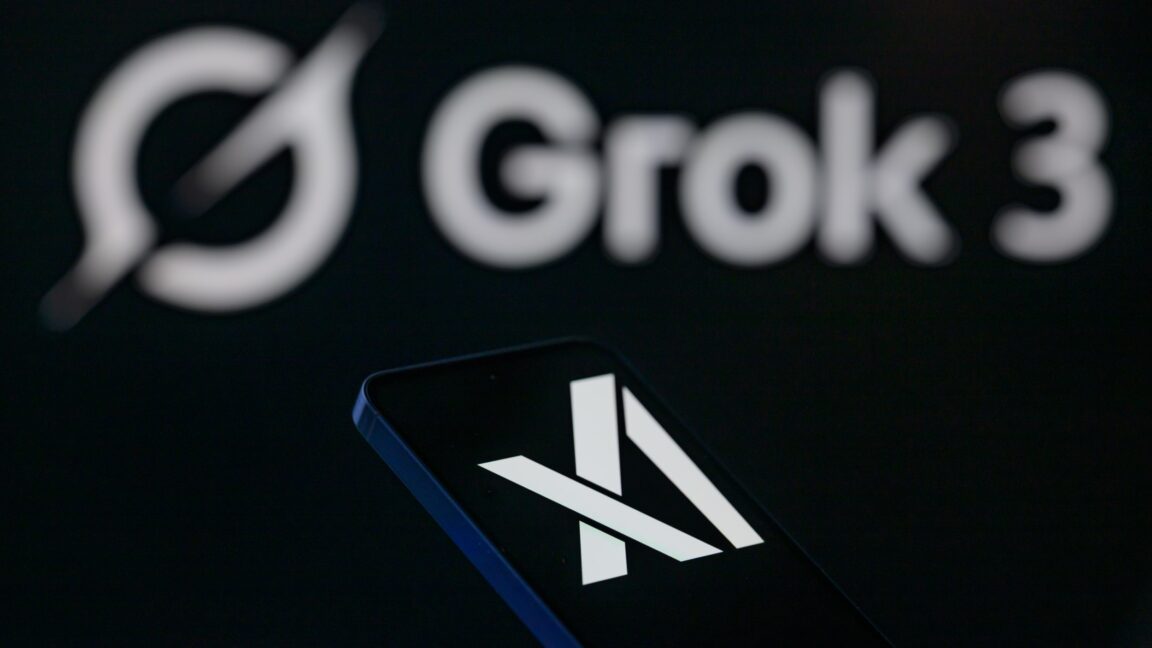























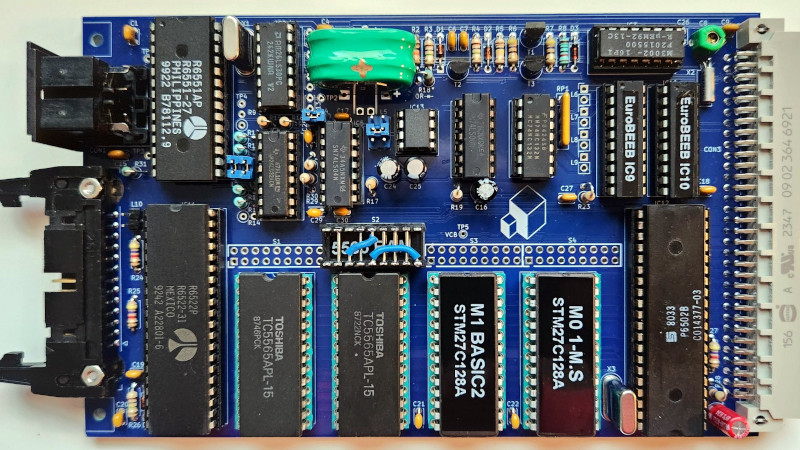












































.webp?#)





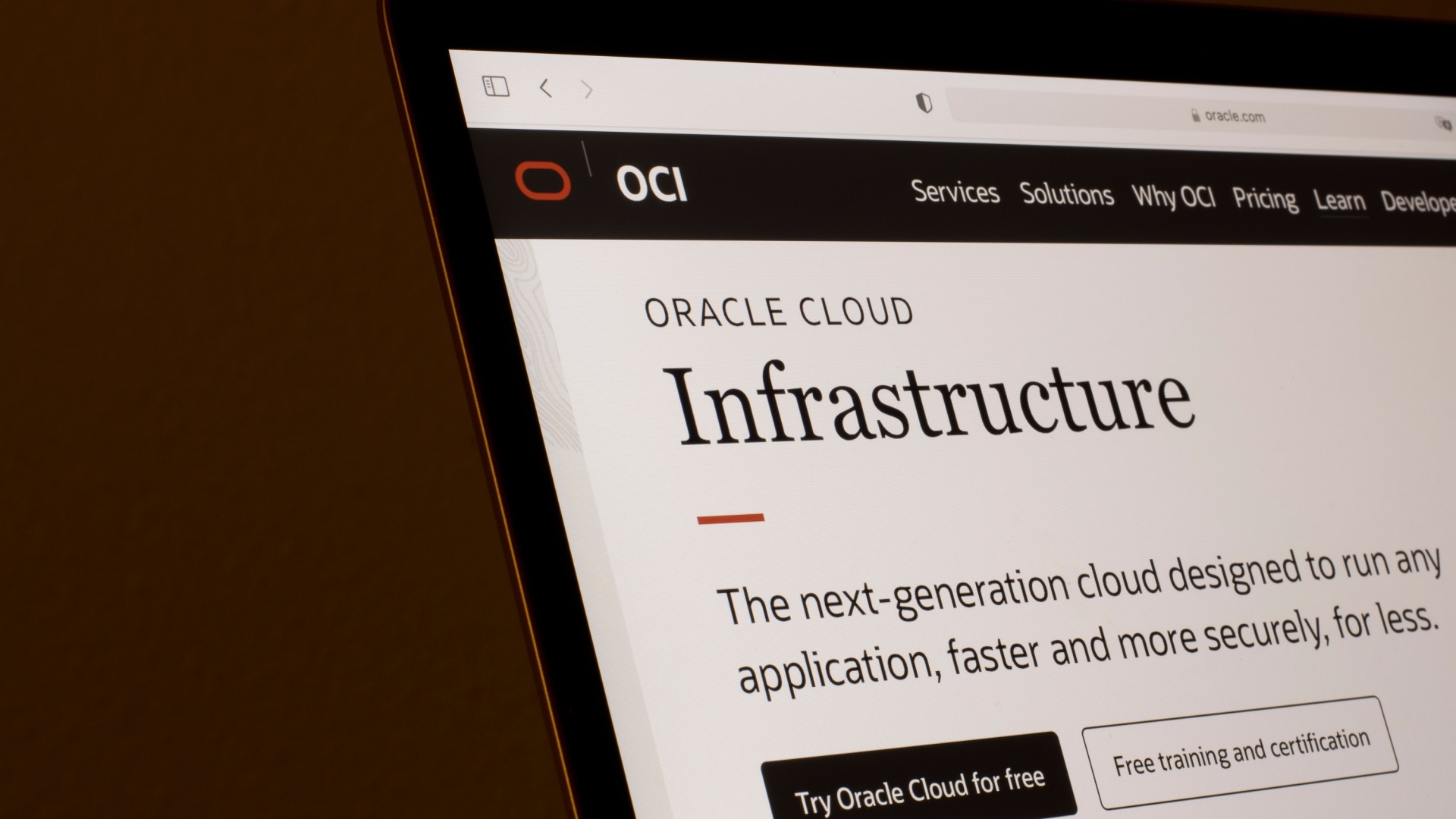






































































![[The AI Show Episode 141]: Road to AGI (and Beyond) #1 — The AI Timeline is Accelerating](https://www.marketingaiinstitute.com/hubfs/ep%20141.1.png)
![[The AI Show Episode 140]: New AGI Warnings, OpenAI Suggests Government Policy, Sam Altman Teases Creative Writing Model, Claude Web Search & Apple’s AI Woes](https://www.marketingaiinstitute.com/hubfs/ep%20140%20cover.png)
![[The AI Show Episode 139]: The Government Knows AGI Is Coming, Superintelligence Strategy, OpenAI’s $20,000 Per Month Agents & Top 100 Gen AI Apps](https://www.marketingaiinstitute.com/hubfs/ep%20139%20cover-2.png)
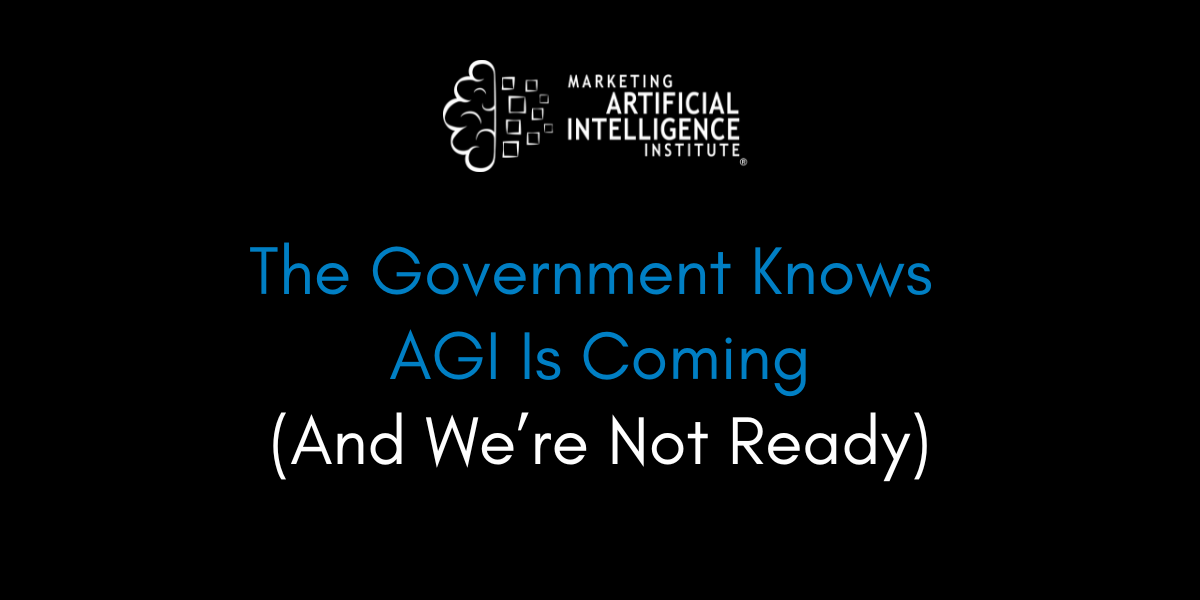























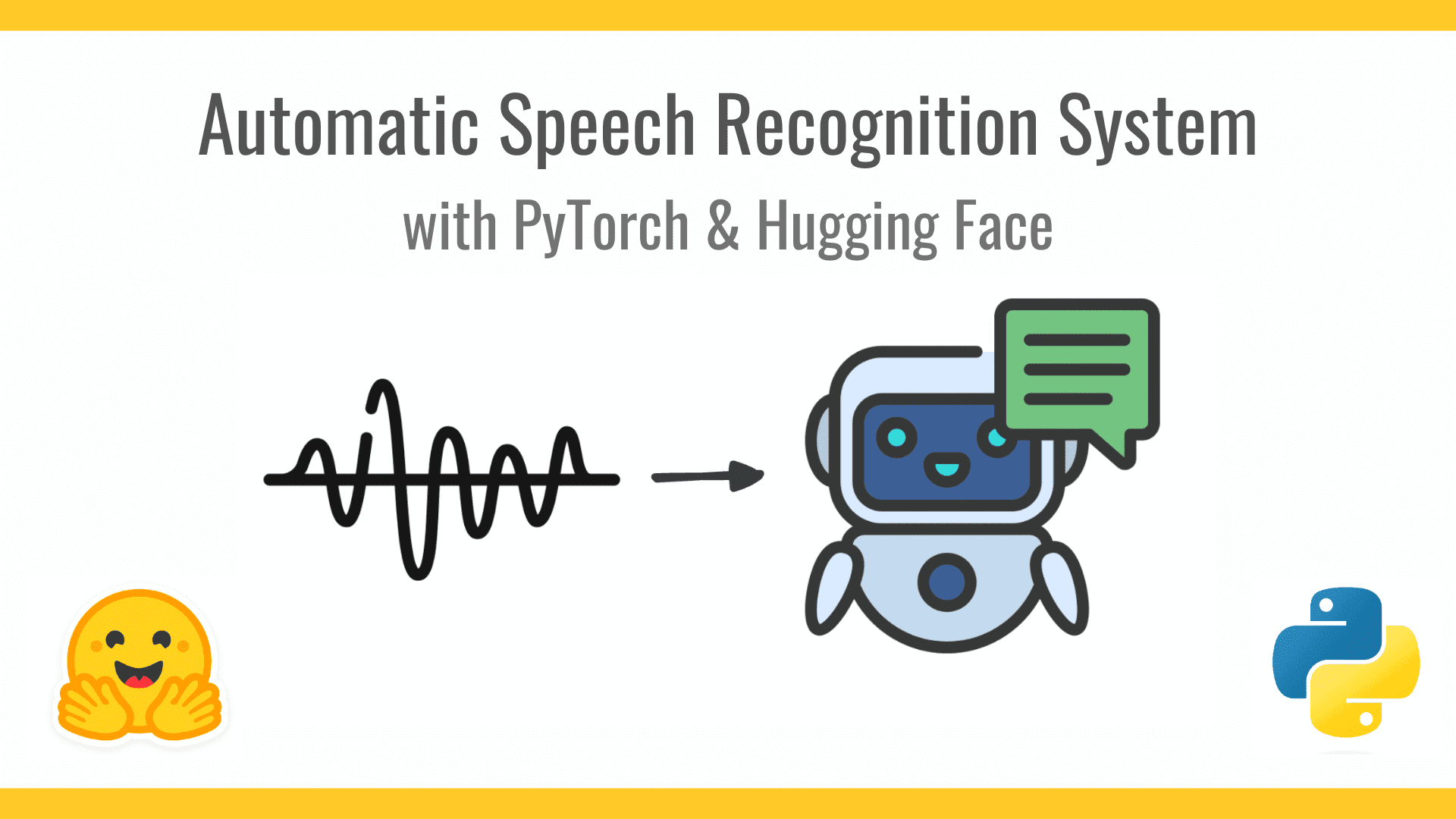













































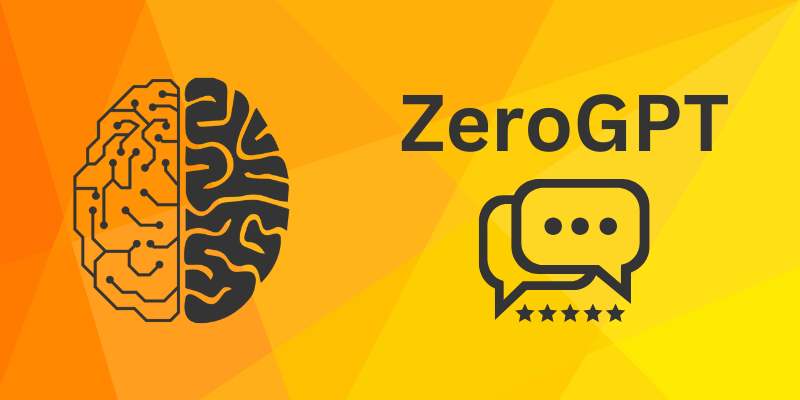













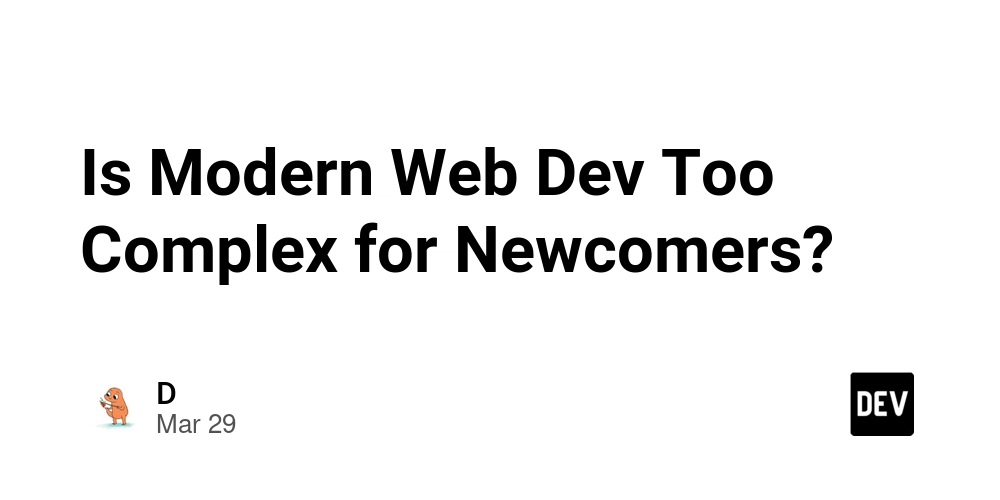
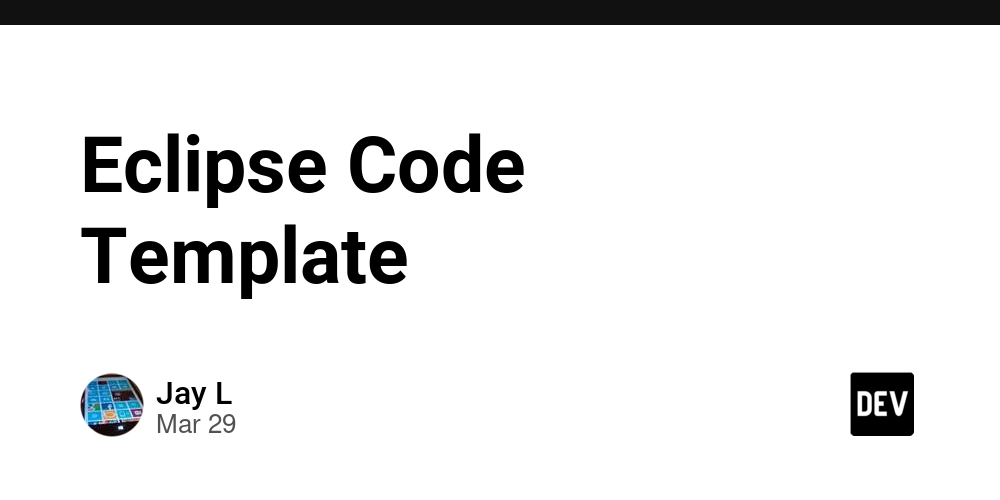

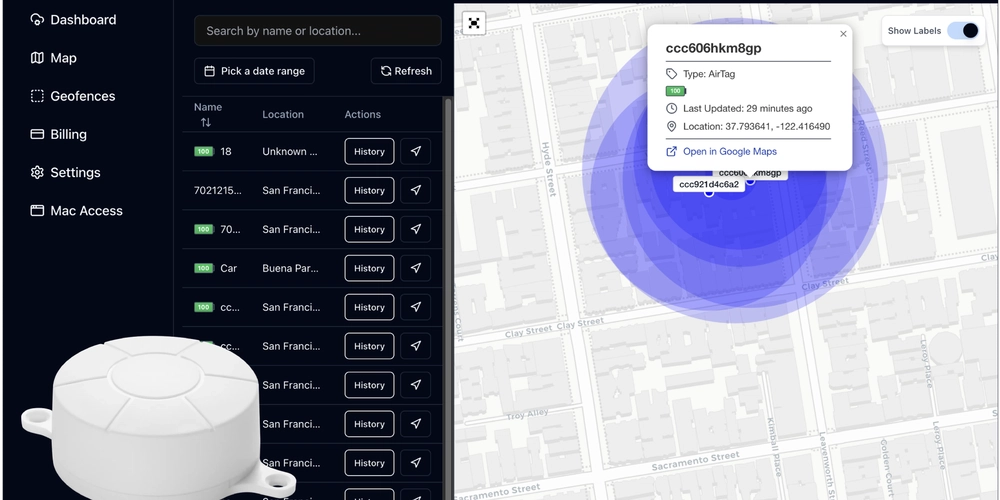

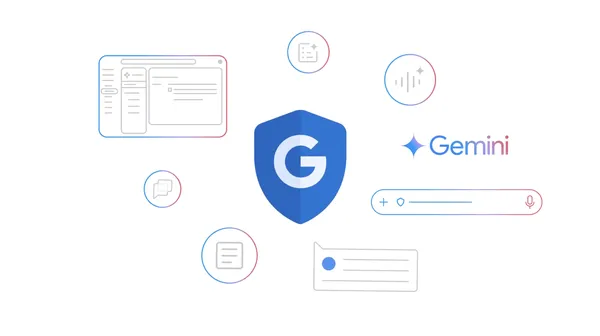

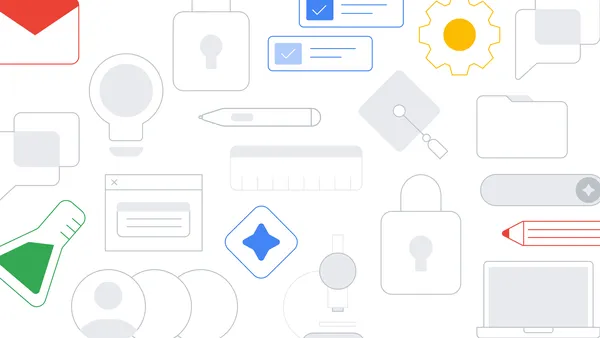




















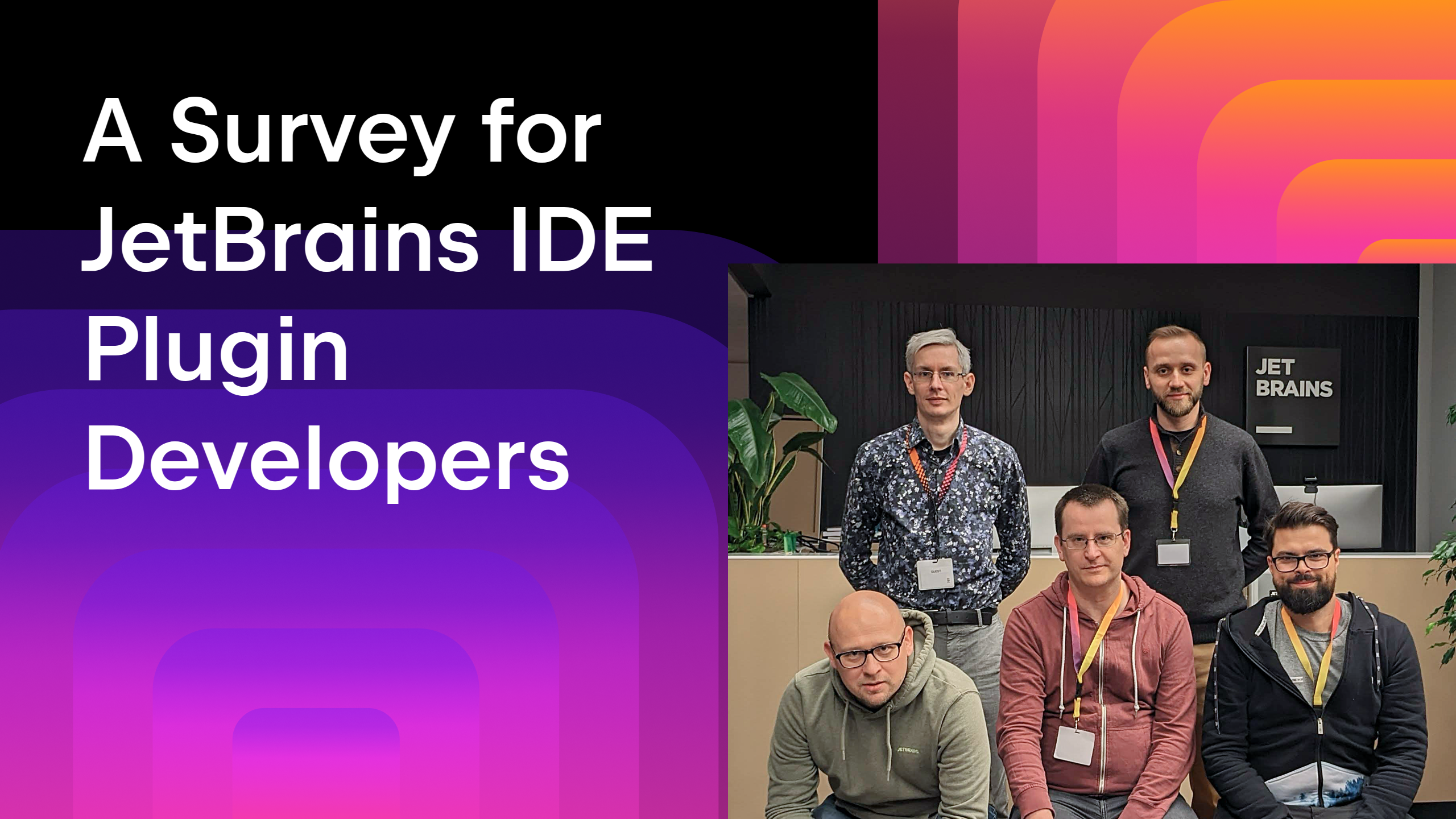
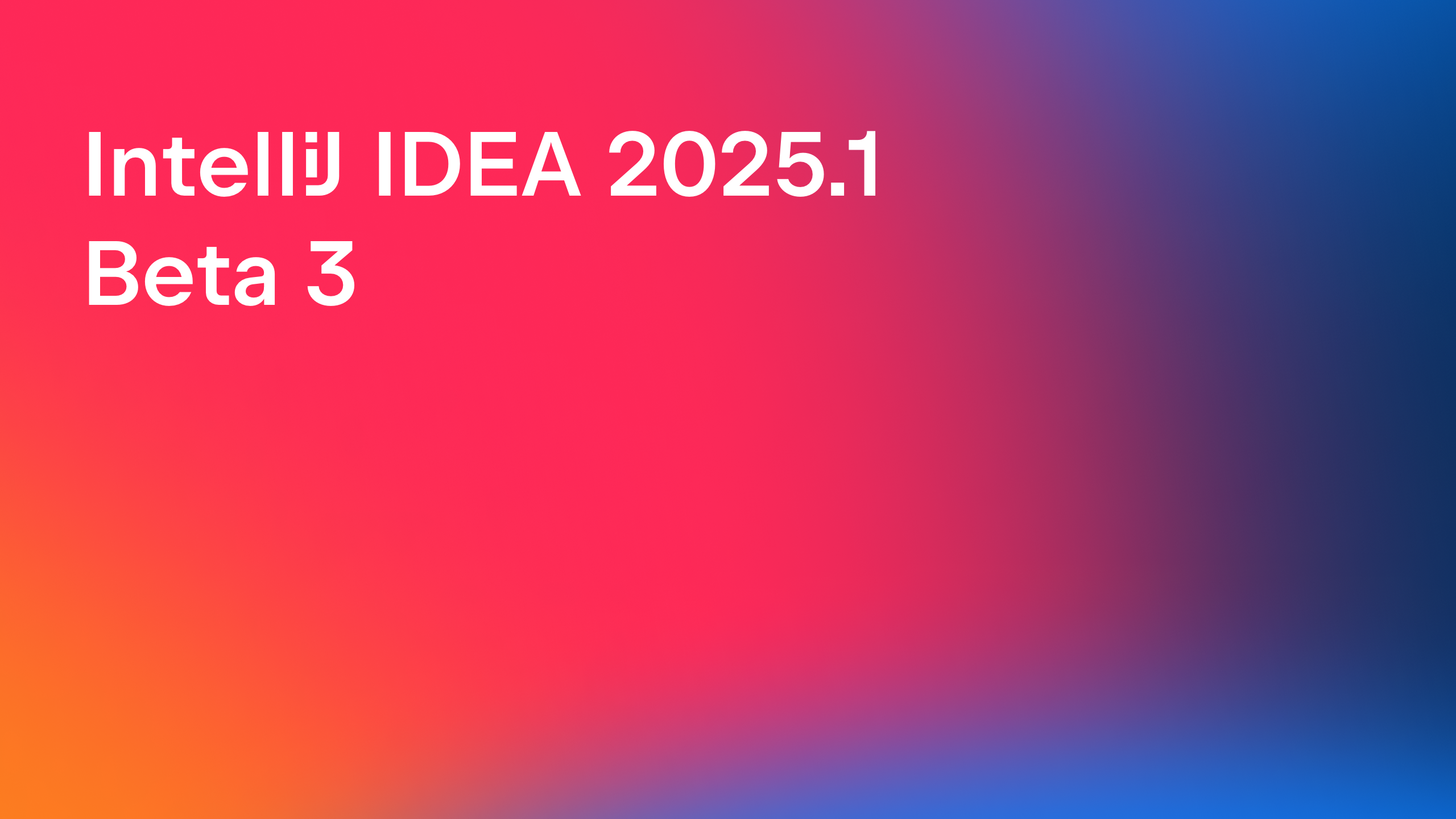

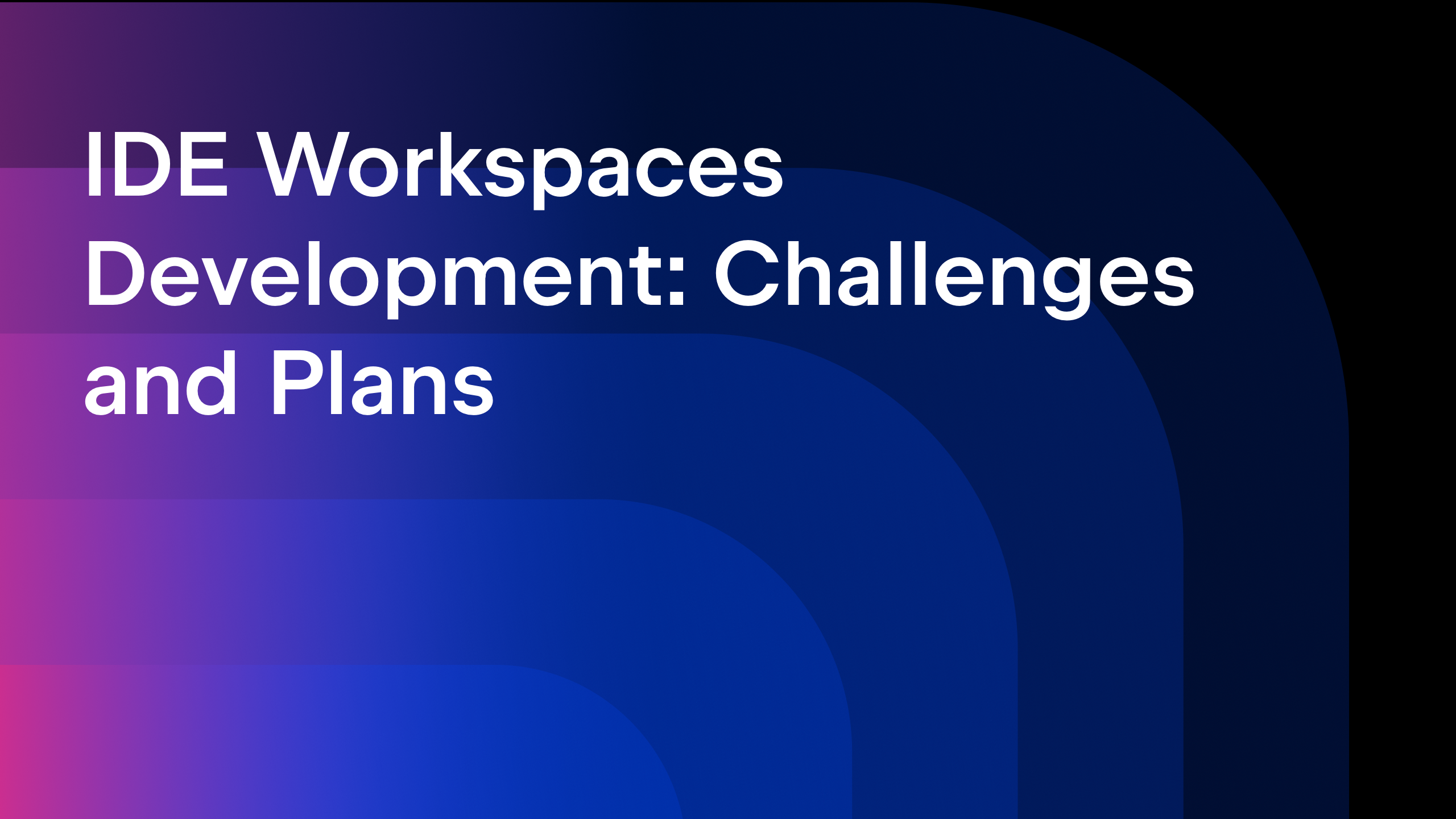






![From broke musician to working dev. How college drop-out Ryan Furrer taught himself to code [Podcast #166]](https://cdn.hashnode.com/res/hashnode/image/upload/v1743189826063/2080cde4-6fc0-46fb-b98d-b3d59841e8c4.png?#)

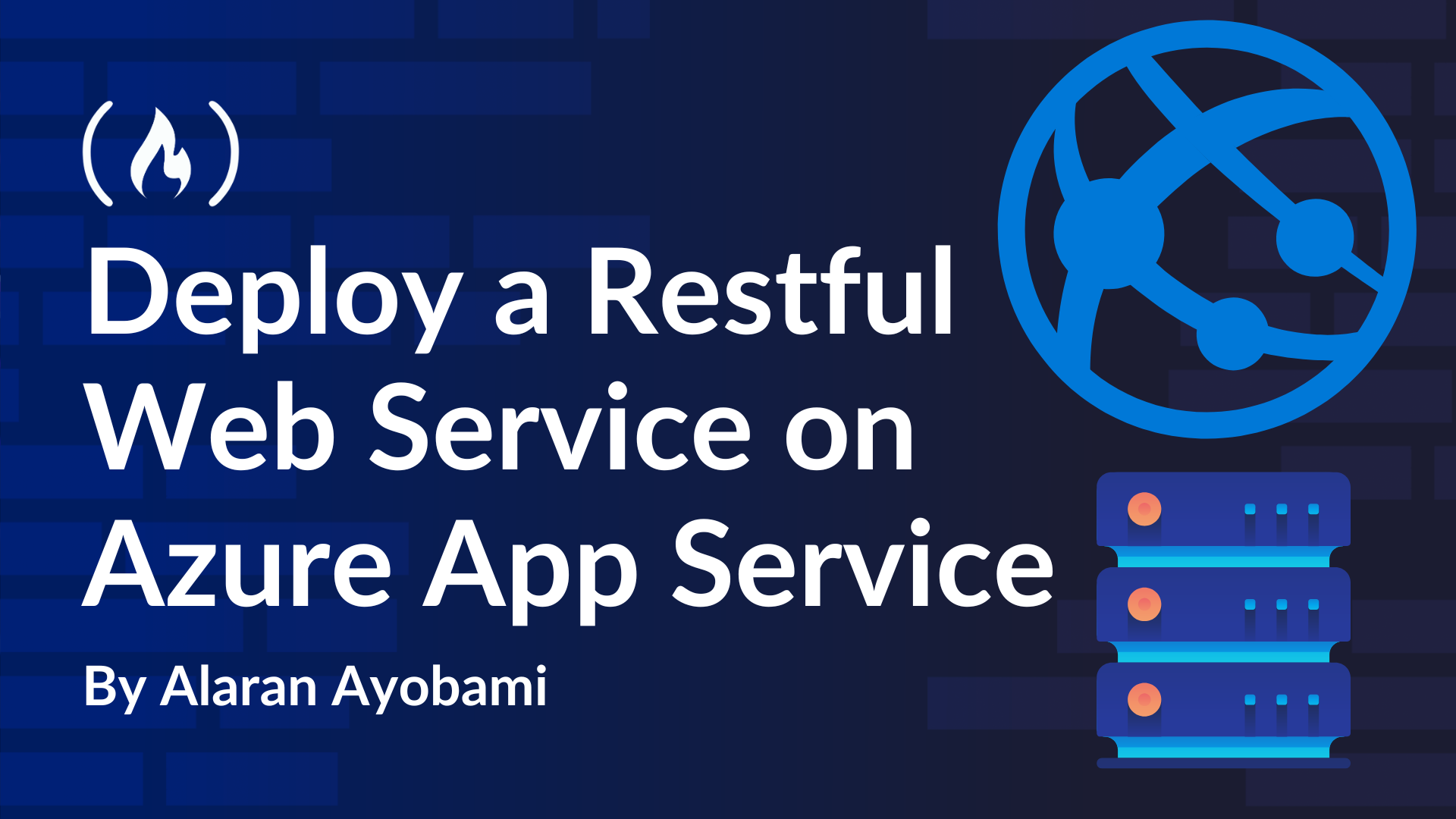
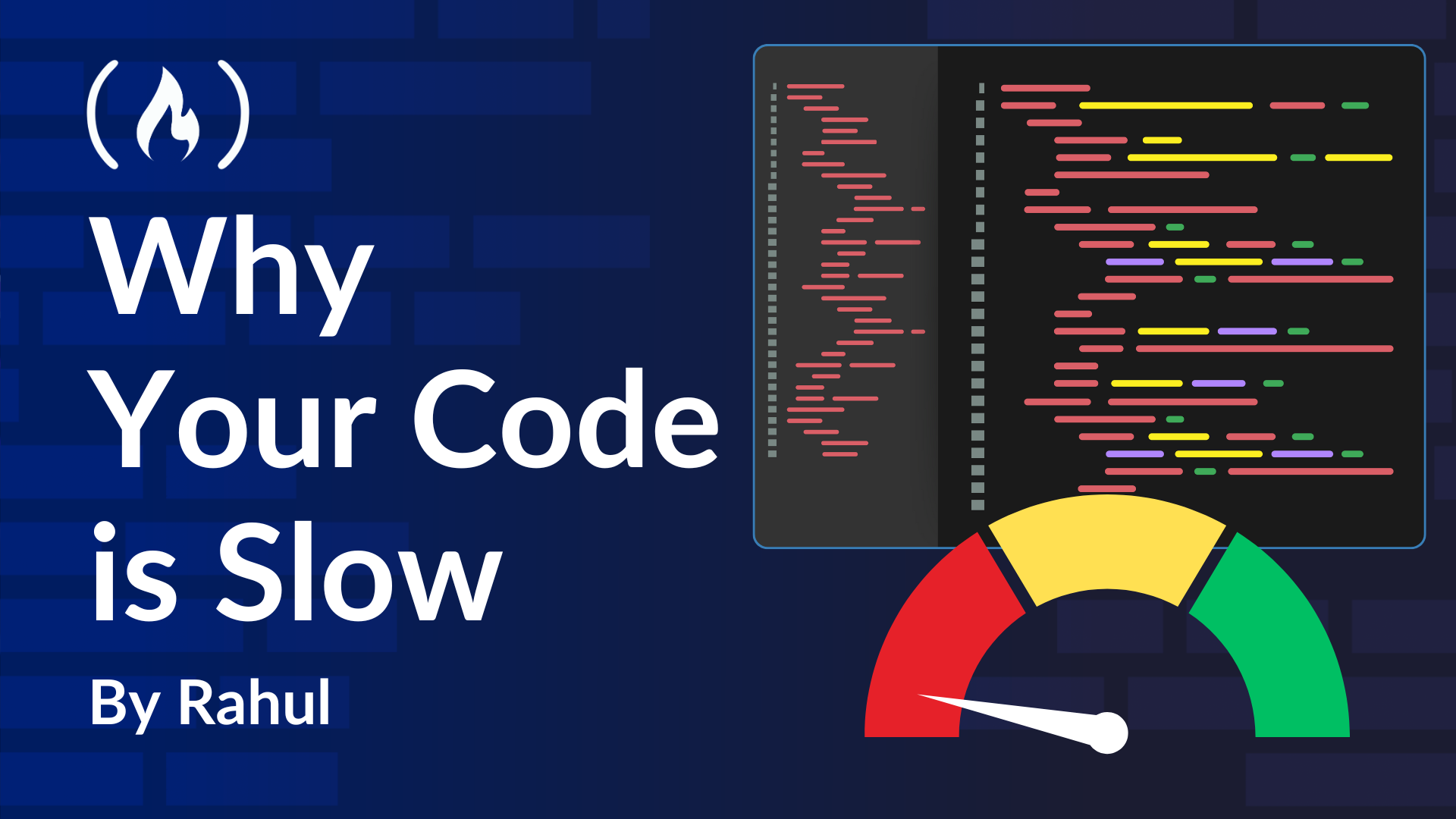





















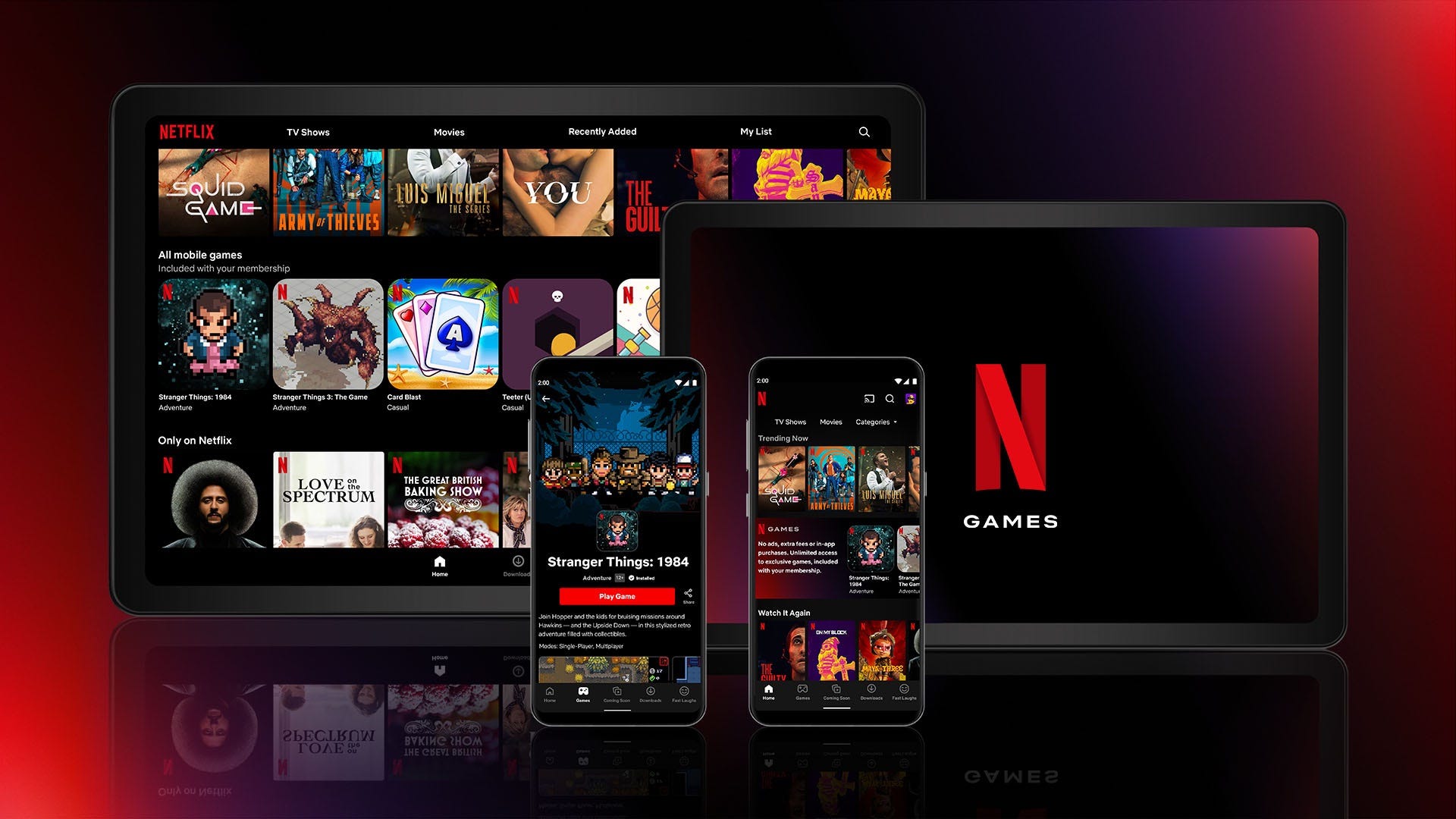






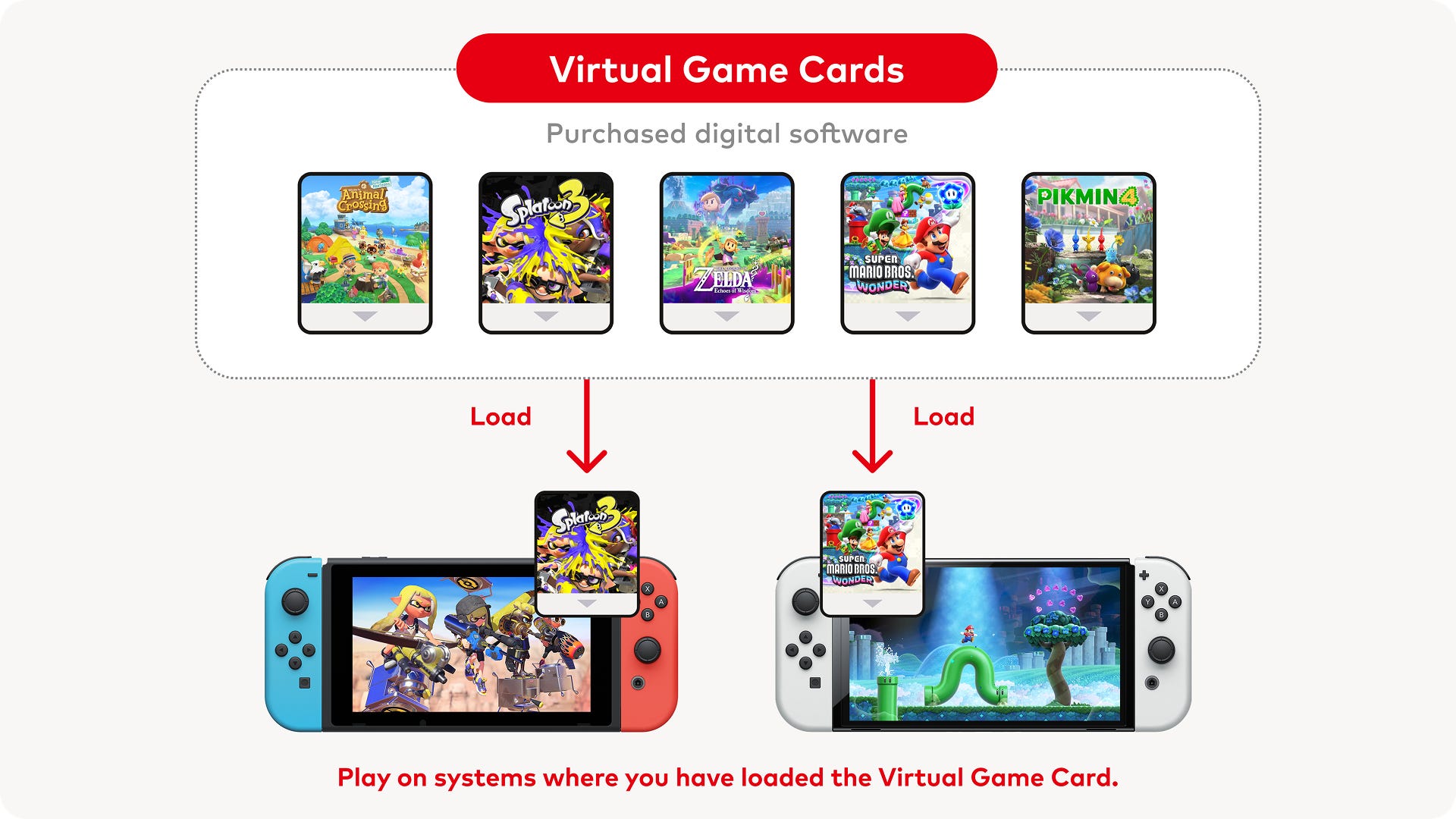


.jpg?#)


.png?#)



